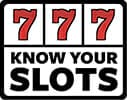One of the more common superstitions that I see from some players is that because Indian/tribal casinos are not required to report their payback percentages, that they can take the liberty of setting machines much lower than in markets like Las Vegas, where reporting is mandatory.
STATUS: Unknown, for obvious reasons. But we have some data points that infer that it’s probably not as dire as many make it.
For whatever reason, a lot of gamblers don’t trust the places they gamble to be honest. As recently discussed on the topic around casinos hacking machines, that’s a pretty unhealthy way to look at things, in my opinion. Part of why I write about Myths vs. Reality is that there is some information out there, even when the answer isn’t obvious, that we can examine. Here’s some data points:
- There are two tribes in Connecticut that report. The only tribes that report their data are in Connecticut, per state agreement, and they pay back around or even a bit above the market average. Some may argue that the fact that they report forces them to keep honest, but how often do you talk to another casino gambler that actually looks this stuff up? You might be reading this site, or others like it, but most gamblers go where they have fun, or enjoy the environment, and so on.
- Any Indian casinos buying Vegas-style slots are buying the same slots designed for other markets. To ensure games and machine types can be profitable, they’re designed with as many regional markets’ rules as possible in mind so they can get certified and used in more places. An Indian casino buying a game isn’t getting lower paybacks than the one in a major market at a commercial casino.
- Many tribes have the same minimum payback rules that commercial casinos have. Some believe those minimums are exactly what the tribes pay. But, again, in other markets where reporting exists and so do minimums, no casino comes close to many of them. Having a 75 percent minimum in law (as is the case in Nevada) is a very low bar to clear, and casinos pay well above that even on penny slots in part because the machines can’t pay that low.
- Competition is increasing. If players “feel” that a casino isn’t giving them the same level of opportunity as another, they’ll stop playing there. So increasingly tribes have to factor that in to their overall floor decisions.
Now, tribes could follow the same model as cruise ships and pay the absolute minimum. Anyone who’s played on a cruise ship vs. in a commercial casino though can tell you they can feel the difference – that few percentage points shaved off of penny slots, for instance, makes a remarkable difference about the frequency and size of wins.
But to those who think tribes are paying 75 percent or something like that, I again urge those who think they aren’t getting a fair shake to contemplate why they’re playing at a casino they believe is tough when others with data out there are available. It’d be better to save up and fly to Vegas than to funnel $50 or $200 or whatever at a time to a local casino that you don’t believe will give you a fair shot.





